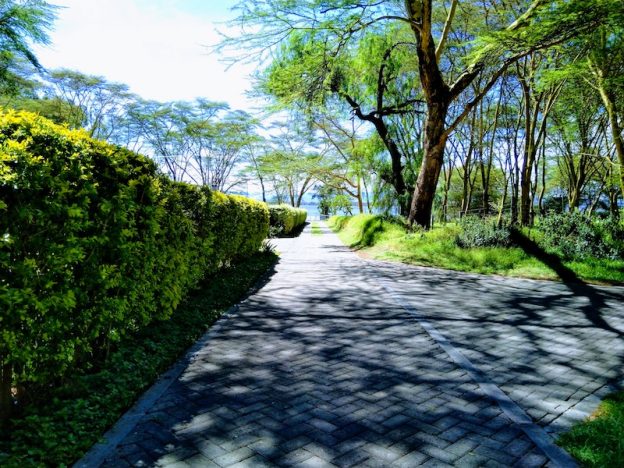The Outbreak:
- March 13: The Ministry of Health confirms the first case of coronavirus in Kenya on March 12 from a Kenyan citizen who returned to the country from the USA via London
- March 22: Kenya confirms 8 new cases, bringing the total number to 15. It is tracing 363 other people and institutes a mandatory shutdown of major social activities in the country.
Banking Industry:
- March 15: President Uhuru Kenyatta appealed to banks and mobile operators to reduce the costs of mobile transactions and calls on Kenyans to use credit cards, mobile money and other forms of cashless payments.
- March 16: Safaricom waived fees for M-Pesa payments below Kshs 1,000 (~$10) for 90 days and raises M-Pesa transactions limits to Kshs 150,000 and also increases daily transaction caps and maximum mobile money wallet sizes up to Kshs 300,000 ($3,000). Airtel and Telkom Kenya follow suit a day later.
- March 18: Bankers meet the President at State House where the Central Bank of Kenya (CBK) Governor announces that all commercial bank personal loans that were there in good standing on March 2, are eligible for extensions for up to one year while SME and corporate borrowers can approach their banks to be assessed for loan restructuring, with the cost borne by banks. Also, that banks would no longer charge fees for customers to check their bank balances.
- Different banks announced their compliance with the new rules.
- March 19: The Kenya Bankers Association confirms that all banks will assist clients who come in to speak about how COVID-19 has affected their employment or business operations, and whose loan repayments were up to date as at 2 March 2020. They also ask all customers to observe 1-metre (or 3 feet) social distancing at branches
- March 20: The CBK announces presents Kshs 7.4 billion ($74 million) to the Government to support the coronavirus fight efforts. This it says are the proceeds from the demonetization exercise that concluded in September 2019 and is the sum of (old) Kshs 1,000 notes that were not turned in and which the CBK had classified as being miscellaneous receipts.
Famous People in Quarantine
- March 18: Senator for Kericho County Aaron Cheruiyot announces on twitter that he is in self-quarantine.
- March 19: Members of Parliament and Parliamentary staff who arrived from London on March 9 are reported to be in self-quarantine.
- March 19: Ambassador Macharia Kamau Kenya’s Principal Secretary to the Ministry of Foreign Affairs announces on twitter that he is in self-quarantine after returning from New York.
- March 20: Jane Marriott, the British High Commissioner to Kenya announces on twitter that she is in self-quarantine, following her trip to the UK.
- March 22: Kenya’s Cabinet Secretary for Health announces that Gideon Saburi, the Deputy Governor of Kilifi County, has been apprehended and put in a mandatory 14-day quarantine after he failed to isolate himself after returning from a trip to Germany. Also that he will be charged in Court after his isolation period.
Mandatory Quarantine in the Eastern Africa region
- March 18: Uganda announces immediate mandatory quarantine for arriving visitors, at their cost.
- March 21: Ethiopia announces mandatory for passengers arriving from March 23, at their cost. However, diplomats will be quarantined for 14 days at their embassies, while transiting passengers will be placed in isolation at the Ethiopian Skylight Hotel until they resume their connecting flights.
- March 22: Kenya has suspended all international flights other than cargo from March 25. Also, all arriving passengers will undergo mandatory quarantine at a government institution at their own cost.
Internal country shutdowns
- March 14: Rwanda closes schools, places of worship, large gatherings, and asks people to work from home.
- March 15: Kenya’s President announced the Government has closed all schools, suspended official foreign travel, and will encourage all employees to work from home.
- March 18: Uganda closes schools, universities and bars, and bans weddings and religious services for a month.
- March 21: Rwanda closes its borders to movement of people and cancels international flights, other than cargo ones. It also suspended tourism and research in 3 national parks where gorillas are found.
- March 21: Nigeria shuts its airports to international flights as coronavirus cases reach 22.
- March 21: South Africa closes its airspace to foreign travelers.
- March 22: Kenya orders a suspension of religious services at all places of worship, closure of bars and bans gatherings including weddings, and birthday parties. Restaurants are to remain open for delivery services and funeral events are restricted to a maximum of 15 mourners.
Flight cancellations/ Airlines reschedulings:
- March 17: Kenya Airways updates its schedule, reducing London flights to five times a week, Dubai & Johannesburg to once daily, and Johannesburg to two daily. It also suspends flights to Bangkok, Khartoum, Djibouti & Mogadishu.
- March 18: Rwanda announces a halt to all commercial passenger flights into/out of the country on March 20 including operations of Rwanda Air for 30 days.
- March 19: Kenya Airways suspends flights to Antananarivo, Bamako, Bangui, Blantyre, Brazzaville, Kigali, Kilimanjaro, Luanda, Yaounde/Douala, and Zanzibar.
- March 20: Ethiopian Airlines announces 30 routes closures. The list is not revealed till the next day – and the listed countries include Egypt, Lebanon, Somalia, Djibouti, Namibia, Equatorial Guinea, Cameroon, Chad, Madagascar, Angola, Congo, Mali, Senegal, Rwanda, South Africa, Canada, Spain, Belgium, Switzerland, Indonesia, Israel and all US ones.
- March 20: South African Airways immediately suspends all operations until the end of May following a government notice prohibiting the embarkation/disembarkation of non-SA crew and passengers. The only flights that will remain will be domestic service between Johannesburg and Cape Town.
- March 22: Emirates announces cancellation of all passenger flights from March 25 .. but ..
- March 22: Turkish Airlines to suspend most of its flights – leaving just a handful of flights to New York, Washington, Addis Ababa, Moscow & Hong Kong (via AlexinAir).
- March 22: Kenya Airways suspends all international flights. Cargo flights remain, as will passenger services to Mombasa and Kisumu.
Corporate Restructuring’s:
- March 13: Trading was suspended at the Nairobi Securities Exchange. This came following news of the discovery of the first coronavirus case in Kenya and the main share index dropped by over 5%. Past instances when circuit-et breakers have been tripped include in the period of post-election violence in 2008, and in September 2017, on the day that Kenya’s Supreme Court nullified the results of the August 8 presidential election.
- March 13: Kenya’s insurance regulator, IRA, communicates that insurance companies will continue to provide their services to policy holders affected or infected with the virus .. but insurance companies say their re-insurers do not cover pandemics such as Coronavirus.
- March 16: Ethiopian Airlines restructuring plans include scaling up cost-saving programmes and asking service providers for temporary relief, discounts and waivers. They have also started to renegotiate all contracts, including aircraft leases as well as scaling down offices and reducing staff.
- March 16: Java adjusts seating and promotes delivery as do other restaurants. But many other restaurants closed.
- March 18: It was revealed that The Standard Group plans to lay off 170 workers.
- March 18: Churches to restrict attendance numbers.
- March 18: The African Development Bank cancels all travels and requires staff to work from home. The Bank’s Board of Directors is reviewing the configuration and design of the Bank’s statutory Annual Meetings originally scheduled for May 26-29, 2020 in Abidjan.
- March 18: Kenyan listed companies and licensed investment schemes that were to host annual general meetings (AGM’s) in March, April and May 2020 have been asked to defer them to later dates.
- March 20: Kenya Airways CEO sends a memo to staff following COVID-19 and writes that in the last 24 hours, nine countries in our Africa network, the UAE and India have announced travel restrictions. So far, we have reduced approximately 65% of our flights, and this is changing by the hour. He announces that instead of layoffs they will ask staff to take salary reduction and paid & unpaid leave. The leadership team and he will take 75% and 80% respectively, while that for other staff will be 25% or 50% depending on the pay grade.
- To facilitate supermarket shopping home deliveries, Tuskys has partnered with Sendy and Naivas has partnered with Glovo.
Government Adjustments
- March 16: The Ministry of Lands closes all land registries for 28 days from March 17.
- March 16: Kenya’s Sports & Culture Ministry closes all museums, archives, stadiums, public libraries, and cinemas for 30 days.
- March 18: Kenya’s National Assembly and Senate both go on a month-long recess.
- March 18: Kenyan courts embraced digital filings and rulings of cases.
- March 19: Public health campaign to stop the spread is launched.
Uplifting News
- March 21: A thread to help those losing jobs their jobs this week and to help match their skills with part-time or remote-work opportunities.
- March 22: The first shipment of medical relief equipment offered by the Jack Ma Foundation arrives in Africa for distribution to different countries. The total will be 500,000 test kits and one million masks had been pledged on March 13.
- E
DIT: March 2 2022: Two years after Corona’s outbreak, the Kenya Government hasalmost completely rolled back its restrictions and health measures – and tests will no longer be required for fully vaccinated travellers (but may be set by airlines and destination countries), masks are no longer mandatory in open spaces (but at crowded meetings & in palens), contact tracing has been stopped, and people can return to office work, while churches, public transportation and sports can resume at full capacity.THIS WAS FAKE NEWS
EDIT COVID RESTRICTIONS LIFTED


